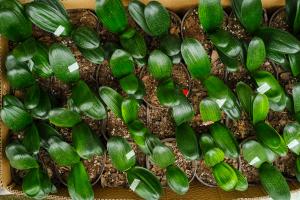Introduction
Water is an essential component of all living organisms, and plants are no exception. Plants require water for various physiological processes such as photosynthesis, respiration, and transpiration. However, water availability is often limited, and plants have evolved mechanisms to cope with water stress. One such mechanism is the concept of water potential, which plays a crucial role in plant water relations. This article aims to explain why water potential is important for plants.
What is Water Potential?
Water potential is defined as the measure of free energy or potential energy that water molecules possess in a solution. Water molecules move from areas of high water potential to areas of low water potential. Therefore, the water potential of a solution determines the direction and rate of water movement. In plants, water potential is mainly influenced by three factors: solute concentration, pressure, and gravitational potential.
Importance of Water Potential in Plant Uptake
Water potential plays a vital role in plant water uptake. When the soil moisture content is high, the water potential of the soil is greater than that of the plant cells. This creates a water potential gradient that drives water into the roots via osmosis, reducing the water potential inside the cells. As a result, the cells become turgid, ensuring the optimal functioning of cells, tissues, and organs in the plant.
Water Potential and Plant Adaptation to Water Stress
Water potential is also significant in plant adaptation to water stress. During water stress, plants close their stomata to reduce water loss by transpiration. This leads to the buildup of solutes in the leaves, increasing solute concentration and reducing the water potential of the cells. As a result, water moves from the cells to the surrounding environment, causing the leaves to wilt. This mechanism allows the plant to conserve water during periods of drought.
Effect of Pressure on Plant Water Potential
Pressure is another factor that affects plant water potential. Positive pressure or turgor pressure, which results from water uptake, increases the water potential in plant cells. In contrast, negative pressure or tension, which occurs when the transpiration rate is greater than the rate of water uptake, reduces the water potential in plant cells. This can lead to stomatal closure, wilting, and even death in severe cases.
Conclusion
Overall, water potential is crucial to plants as it determines the amount and direction of water movement. It plays a significant role in plant water uptake, adaptation to water stress, and overall plant growth and development. Understanding the concept of water potential is essential for efficient plant water management and for developing sustainable agricultural practices.

 how many times do yo...
how many times do yo... how many planted tre...
how many planted tre... how many pine trees ...
how many pine trees ... how many pecan trees...
how many pecan trees... how many plants comp...
how many plants comp... how many plants can ...
how many plants can ... how many plants and ...
how many plants and ... how many pepper plan...
how many pepper plan...





























